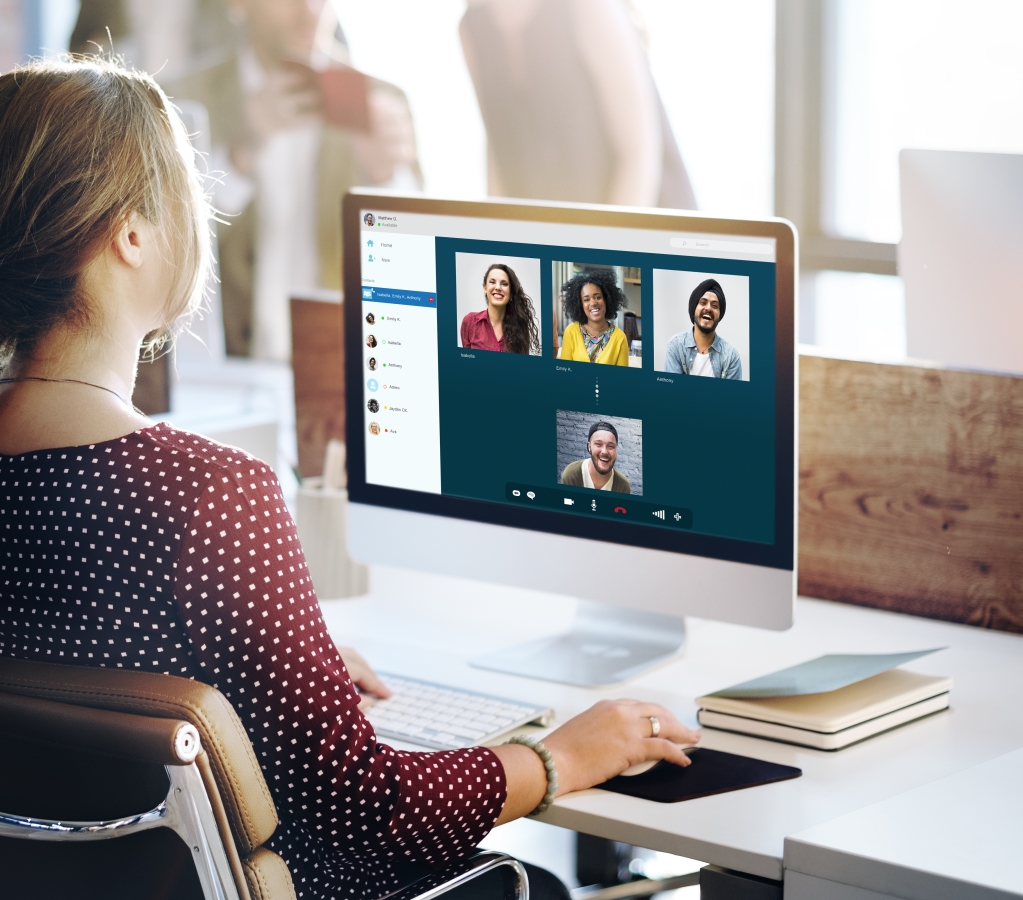What are Online Group Discussions?

Online group discussions are Focus Group Discussions held with 6 to 8 respondents over a social media platform like a Zoom or Zoho or any such medium.
They are virtual face to face meetings held with participants just as the way Focus Group Discussions are conventionally conducted at a venue. The only difference is that the moderator is not physically sitting face-to-face with respondents, instead he/she is having a virtual conversation with them via a platform.
It is still face-to-face, enabled by technology that allows us to watch each other as we speak. In addition, the moderator can share his/her screen, show stimulus like in traditional groups, and get direct consumer feedback.
The stimulus can be static concept boards, or animatics or early-stage advertising ideas, packaging, etc. Whatever that can be shown and discussed in a regular group can also be theoretically done online with some modifications and adaptations.
Why are Online Group Discussions relevant?

Due to COVID-19, our lives have been upended. All our plans and strategies have gone haywire. We are all now at home, away from our offices, working from home, and coping with multiple challenges.
But as brand custodians and insight leads, we must continue to stay in touch with our consumers, understand what they are experiencing, and learn how we can communicate with them.
Remote research as a concept is not new to Market Research. It has been in existence for a long period of time.
There are multiple ways of doing Online research that are time-tested and proven to be effective online, both in Qualitative and Quantitative research. It is, however, relatively new to Indonesia.
Given the circumstances, all of us, both clients and agencies included, must innovate our way into the online space, otherwise, we run the danger of not knowing our consumers.
How are Online Group Discussions conducted?
Do Online discussions mean a simple replication of online discussions or is there something more? Are there any blind spots? What must one be wary of? What are the unique challenges in Indonesia?
These are some of the questions that we are attempting to answer in this article.
Recruitment – Go Multi-pronged

Unlike markets where online research is more mature and stable, Indonesia is just about beginning to test waters in the online space, forced by the current circumstances. Online panel providers are available in Indonesia but they are unable to commit respondent participation in the study.
Further, they are also not able to provide respondents who meet all the specific brand purchase and psychographic criteria which you see commonly being applied in Qualitative screeners. This could make recruitment a bit tricky.
At Neurosensum, we are currently using a host of different methods – Online, Offline, Panel Recruitment, Snowballing, Referral methods, etc – in order to recruit on time and correctly.
And of course, all recruitment is over the telephone or digital platforms with visual evidence sought for SEC criteria, brand usage, etc. Whatsapp, Google Hangouts, Skype, telephone all are extensively used for this purpose.
Screening criteria: Screen for Tech Familiarity, do test runs
In addition to the usual criteria, we are using other criteria such as ‘Tech Familiarity’, ‘Stable Internet’ etc to ensure that there are no hiccups arising out of consumers who are not being able to navigate the platform.
Given the high level of computer literacy and smartphone ownership in Indonesia, we are not encountering any difficulties in finding people meeting these criteria, especially in SEC A and SEC B segments.
Where it is a challenge, we are encouraging respondents to seek assistance from a close friend or a family member to help navigate the platform.
As restrictions begin to ease, we see our recruiters meeting consumers face-to-face and tutoring them on tech aspects.
Nonetheless, it is really useful to do a test run with all the eligible respondents so everyone is familiar with each other as well as with the platform. You will be surprised to see how people, who are generally articulate, become tongue-tied and awkward on the platform.
This is the equivalent of ‘warming up’, not just with the moderator but the somewhat unknown nature of technology. Unlike in an offline environment when people interject, respond, and debate without thinking too much, in the online environment they might become more self-conscious and less spontaneous.
Hence, ‘getting used’ to the platform as well as the environment is vital for the success of fieldwork.
Discussion Flow: Cut to the Chase
Theoretically, online groups can run for 2.5 to 3 hrs just like offline groups. But there are a number of parameters related to the respondent environment that the moderator is not in control of – electricity & internet interruptions, distractions from people outside the group discussion, loudspeakers with prayer calls, kids calling for mums’ attention, etc.
Hence, it is best to keep the discussion focused on the core topics and cut to the chase sooner instead of following the usual funnel down approach followed in offline discussions.
For a more organic flow of discussion and exploration of topics, we suggest bulletin boards. We will discuss this later in a separate blog post.
Moderation: Online Moderation is a different cup of tea

The moderator himself/herself must be familiar with the platform, its features, must know how to show stimulus, in what format, how to engage in projective techniques, etc. The discussion guide must be drafted in a way that allows the moderator to anticipate all issues and improvise as things go.
Thinking on the feet, having the presence of mind, having a junior moderator to assist, having adequate IT support, etc are all very important. How might projective techniques be adapted, how questions are asked, how the stimulus is shown, how products are tested, and when, how are test products shipped to the respondents, all these are very critical components that must be thought through ahead of the discussion.
The moderator must prepare a detailed document and must be ready. Detailed written instructions followed by oral briefing sessions, not just with recruitment companies, but with clients, with respondents, etc are all very necessary. Online discussions are time-intensive projects. They are not cheap alternatives to offline work.
There are several technical features on the platform that allow the moderators to manage the discussion – for instance ‘muting’ a particular respondent when there is a lot of noise in the background, using the ‘grid’ view and ‘speaker’ view to watch respondents all at once, or focusing on one respondent at a time, enabling respondents to present their pre-task by giving them ‘presenter’ permissions are all the things that the moderator must be familiar with.
And on platforms like Zoom, which have caused some controversy in the past where unwanted visitors started bombing the conversation, the moderator must know who to ‘admit’ and ‘not admit’ in the discussion area.
Incentives – Compensate respondents adequately

Consider attractive incentives – a combination of money and Pulsa, maybe! These are not normal times and it is hard for people to feel motivated to participate in these kinds of discussions unless they are attractively incentivized.
Build enough time for recruitment and careful planning. Incentives must vary by how much effort the respondent is required to put in. Is the discussion just a verbal conversation or is it coupled with pre-tasks, presentation of videos, journals? Is there some show n’ tell material? All of these factors must be considered.
Online discussions are way more effective and versatile than offline discussions as they also allow us to peek into consumer lives.
A combination of tasks and discussions must be considered and respondents must be motivated to participate in the breadth of exercises possible online. Hence attractive incentives are vital.
Expect the Unexpected: Be flexible
Prepare to conduct mini-groups or follow on interviews or adopt other hybrid approaches in case things do not go as planned.
Have a note-taker on stand by. Record the session and ensure it is transcribed. There can be that in spite of all the planning, things can go wrong. Be prepared to improvise, adapt, remain flexible, and also prepare the client for the unexpected.
This is new and unfamiliar territory and therefore it is important to learn from each experience.
Online group discussions are just one of the multiple ways in which we can do remote research. There are many other ways – Online Ethnography, Bulletin boards, Life Streaming, etc. Please look out for our other blogs on these methodologies!
